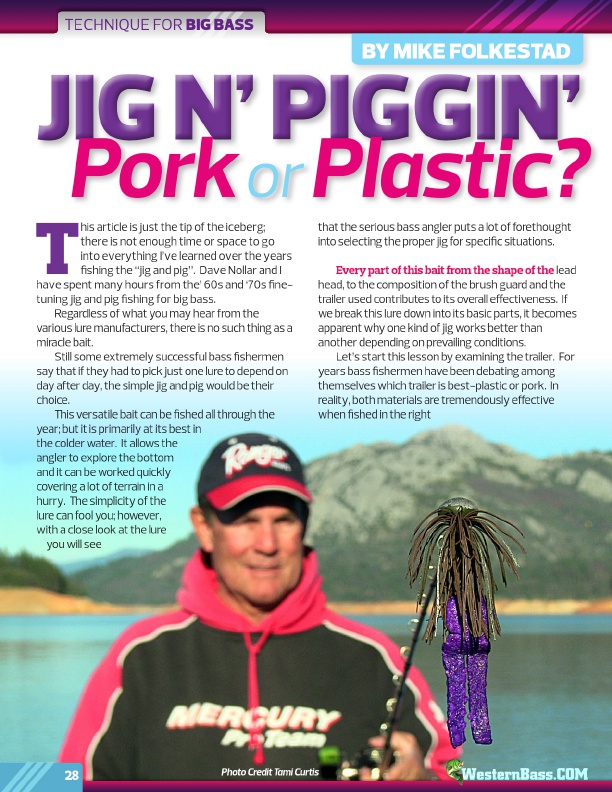
JI G N ’ P IG GIN ’
TECHNIQUE FOR BIG BASS
BY MIKE FOLKESTAD
Pork or Plastic?
T
his article is just the tip of the iceberg;
there is not enough time or space to go
into everything I’ve learned over the years
fishing the “jig and pig”. Dave Nollar and I have spent many hours from the’ 60s and ‘70s fine-
tuning jig and pig fishing for big bass.
Regardless of what you may hear from the
various lure manufacturers, there is no such thing as a
miracle bait.
Still some extremely successful bass fishermen
say that if they had to pick just one lure to depend on
day after day, the simple jig and pig would be their
choice.
This versatile bait can be fished all through the
year; but it is primarily at its best in
the colder water. It allows the
angler to explore the bottom
and it can be worked quickly
covering a lot of terrain in a
hurry. The simplicity of the
lure can fool you; however,
with a close look at the lure
you will see
that the serious bass angler puts a lot of forethought into selecting the proper jig for specific situations.
Every part of this bait from the shape of the lead head, to the composition of the brush guard and the trailer used contributes to its overall effectiveness. If we break this lure down into its basic parts, it becomes apparent why one kind of jig works better than another depending on prevailing conditions.
Let’s start this lesson by examining the trailer. For years bass fishermen have been debating among themselves which trailer is best-plastic or pork. In reality, both materials are tremendously effective when fished in the right
28 Photo Credit Tami Curtis